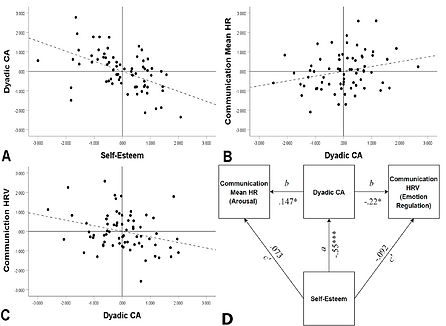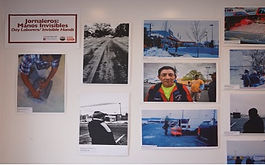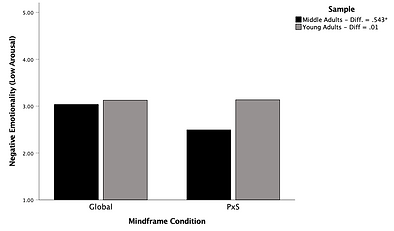iiSEE Team

Introduction
As a group of graduate and undergraduate researchers from various academic and personal backgrounds, we come together under our common psychological interests surrounding intrapersonal & social functioning as linked to various "levels of being", including personality, identity, socio-structural conditions, neurophysiology, and perception.
Interpersonal Communication & Emotion
This area of research explores questions such as:
-
What underlying factors produce/maintain health-related disparities among individuals occupying intersections of marginalization due to their identities and/or life conditions?
-
How do minority-stress patterns affect at-risk communities in the U.S, such as undocumented immigrants?
-
How can we leverage the research process and other scholarly activities to foster belonging and advocacy for underserved groups?

Example:
Since 2019, we have worked in partnership with non-profit organizations and activists to carry out mixed methods research geared towards informing future support strategies for Latin American day laborers in Washington D.C. We are currently analyzing data to help us identify points of intervention to foster their wellbeing. Initial evidence suggests that interventions that mitigate self-blaming in this community could be help foster psychological health.

Intersectionality & Culture-Identity Interactions

This area of research explores questions such as:
-
What underlying factors produce/maintain health-related disparities among individuals occupying intersections of marginalization due to their identities and/or life conditions?
-
How do minority-stress patterns affect at-risk communities in the U.S, such as undocumented immigrants?
-
How can we leverage the research process and other scholarly activities to foster belonging and advocacy for underserved groups?
Example:
Since 2019, we have worked in partnership with non-profit organizations and activists to carry out mixed methods research geared towards informing future support strategies for Latin American day laborers in Washington D.C. We are currently analyzing data to help us identify points of intervention to foster their wellbeing. Initial evidence suggests that interventions that mitigate self-blaming in this community could be help foster psychological health.

Social Perception & Mindsets
This area of research explores questions such as:
-
Do different mindframes (e.g., global vs. interactionist) about our meaningful others shape how we navigate conflict with them?
-
How are social-class transitioners evaluated for their personality, emotional, cultural-capital, and skill profiles?
-
What are the pros and cons (if any) of exhibiting cultural capital range (e.g., being able to navigate both refined and popular social-class contexts).
Example:
Interactionist encodings in close relationships. Preliminary experimental data suggests that encoding your romantic partner in contextual ways (e.g., my partner is short when they are stressed) as opposed to global ways (e.g., my partner is short) after experiencing disappointment may lead to less extreme negative emotional reactions, at least among older couples.
Cultural capital range. Preliminary experimental data suggests that certain social-class transitioners exhibiting cultural capital range are perceived as more intellectually humble than those exhibiting only refined or popular cultural capital. Appraisals of personality (e.g., conscientiousness) and emotions (e.g., irritability) are also patterned differently across those who signal diffferent types of cultural capital.


Future Research
At iisee, we are always looking towards the future. Our team is currently exploring new avenues of research, including quantum computing and nanotechnology. Stay tuned for our upcoming publications on these exciting topics!